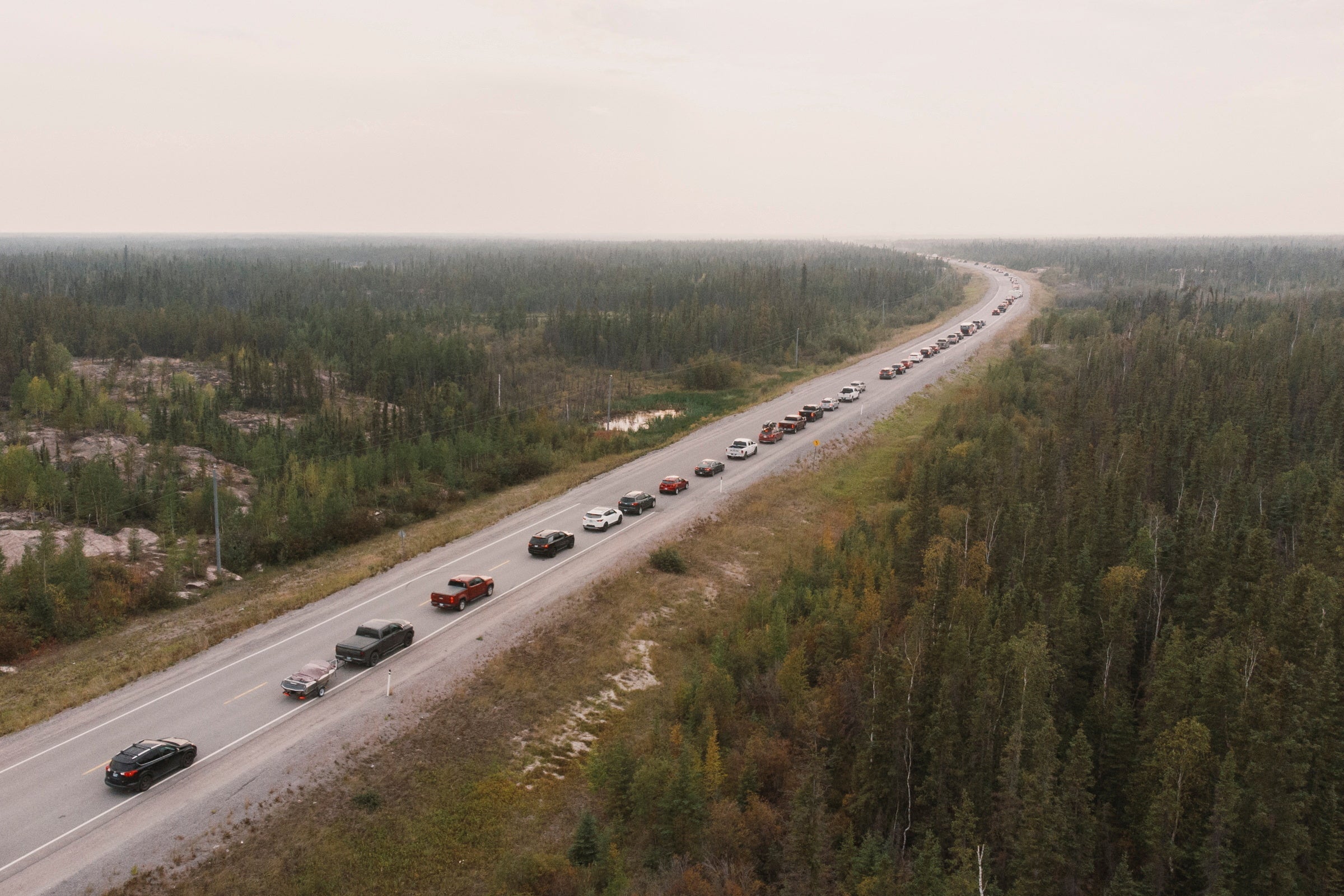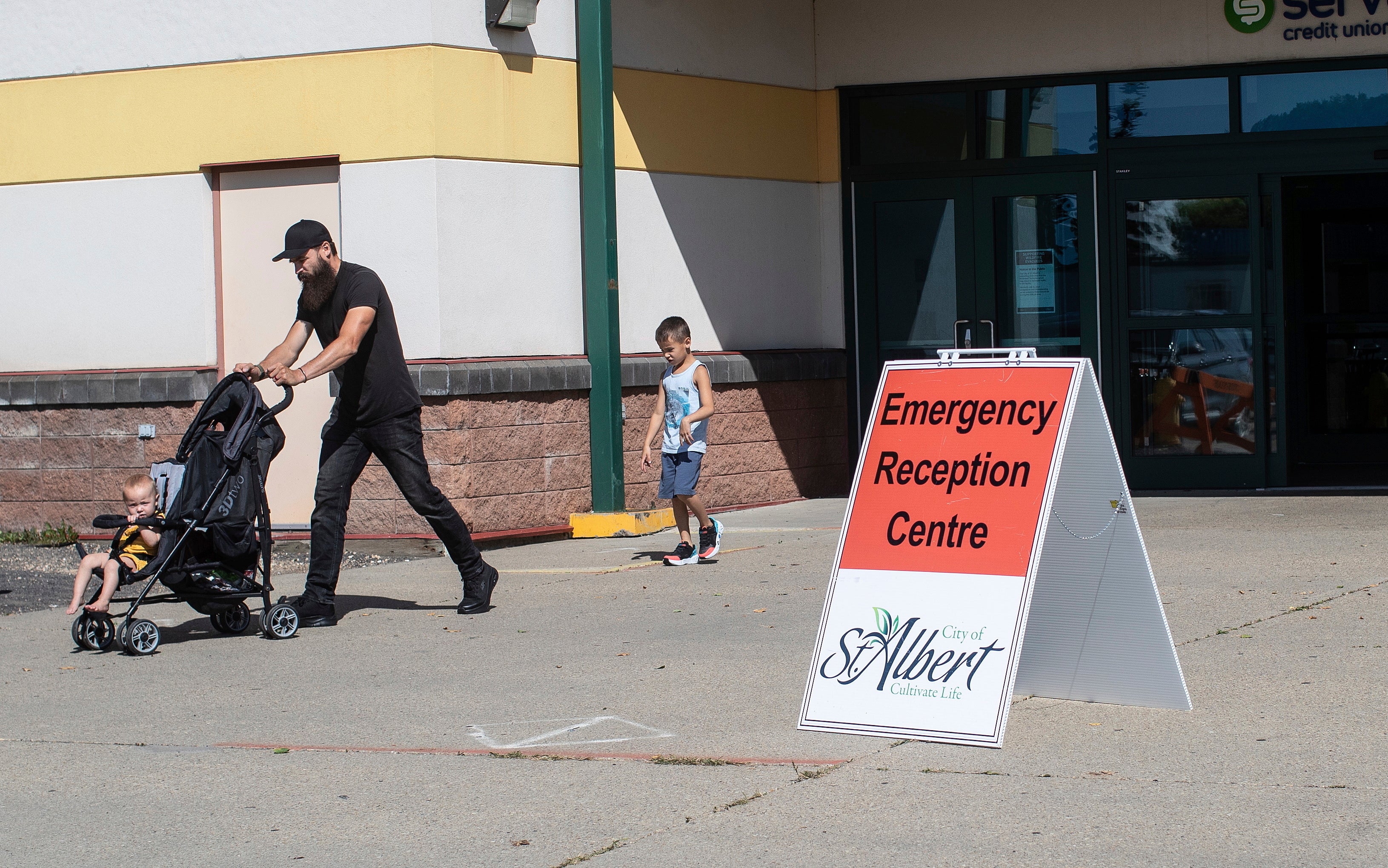Canadian wildfires approach provincial capital as officials race to evacuate city
Officials fear fire could reach Yellowknife by weekend unless rains begin
Your support helps us to tell the story
From reproductive rights to climate change to Big Tech, The Independent is on the ground when the story is developing. Whether it's investigating the financials of Elon Musk's pro-Trump PAC or producing our latest documentary, 'The A Word', which shines a light on the American women fighting for reproductive rights, we know how important it is to parse out the facts from the messaging.
At such a critical moment in US history, we need reporters on the ground. Your donation allows us to keep sending journalists to speak to both sides of the story.
The Independent is trusted by Americans across the entire political spectrum. And unlike many other quality news outlets, we choose not to lock Americans out of our reporting and analysis with paywalls. We believe quality journalism should be available to everyone, paid for by those who can afford it.
Your support makes all the difference.Canada is evacuating residents from the provincial capital city of Yellowknife and other smaller communities amid wildfires that have creeped perilously close, threatening to engulf homes across vast swathes of the Northwest Territories.
Air evacuations were set to commence on Wednesday in the city of Yellowknife, home to approximately 20,000 people.
The government of the Northwest Territories issued an evacuation advisory on Wednesday urging residents in the most vulnerable parts to leave immediately. Residents in other areas have been granted until noon on Friday to evacuate.
The evacuation orders were issued for Yellowknife as well as neighbouring First Nations communities, including Ndilo and Dettah.
So far no deaths have been reported from the Yellowknife fire but several structures have been destroyed.
Officials said they were starting a phased evacuation and individuals who have the option to leave by road should do so, while air travel should be reserved for those who are unable to evacuate by other means, particularly those with compromised immune systems or heightened health risks.
"I want to be clear that the city is not in immediate danger and there’s a safe window for residents to leave the city by road and by air,” said Shane Thompson, a government minister for the Territories.
The wildfires, currently situated about 17km (10 miles) outside the city, advanced relentlessly, sparking fears that the outskirts of the city could be affected by the wildfires if rain does not arrive soon.
However, if there’s no rain, Mr Thomposon said the fire could encroach upon the city's periphery by the weekend.
“There is risk to the City of Yellowknife. Our team, alongside the City of Yellowknife, are doing everything possible to slow the growth of this fire and protect the community,” NWT Fire said.

In case of dwindling visibility due to smoke, individuals departing Yellowknife via the highway will be escorted through the active fire zone.
Teams were working to evacuate Hay River, a community of some 3,000 on Great Slave Lake, by bus or plane on Wednesday night as the fire approached.
“Hay River saw the fire south of their community increase, get closer to the city today,” fire information officer Mike Westwick said at a news briefing on Wednesday evening.

“We saw highly active fire in that area and it was moving quickly.”
Over 200 wildfires have already scorched a vast expanse of the Northwest Territories, contributing to a national tally of 1,067 active wildfires across Canada, including 230 in the Northwest Territories, as of Wednesday.
Canada is experiencing its worst wildfire season this year, driven by record-shattering global temperatures due to the human-made climate crisis and a confluence of weather factors that have seen smoke enveloping North America and turning New York into a chimney, and even reaching Europe.
Western Canada is enduring a heat wave that saw 19 daily heat records broken on Tuesday and could further exacerbate the wildfires.
The fires have already ravaged more than 21,000 square kilometres of land, impacting parts of nearly all 13 Canadian provinces and territories this year, as fire officials struggle to control the blazes for months now relentlessly expanding to more areas.
Additional reporting by agencies







Join our commenting forum
Join thought-provoking conversations, follow other Independent readers and see their replies
Comments